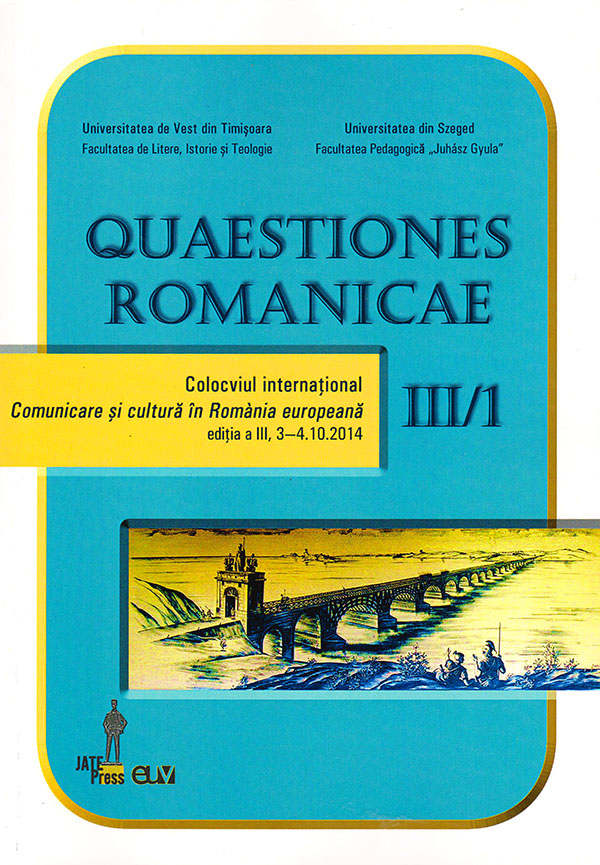Amintirea și uitarea liantului cultural românesc în proza basarabeană de după 1989
Abstract (Remembrance and oblivion of the Romanian cultural link in the Bessarabian novel after 1989): The present study discusses the problem of the aesthetic memory of communism. The concept of aesthetic memory is formulated within the contemporary Western studies about the theory of memory and reflects the way in which the subjective-private memory or the objective-public one turns through the creative-imaginative methods into poetic (aesthetic) memory of the past. The concept of aesthetic memory is studied on the basis of more novels of the Basarabian writers among whom a special role is attributed to the “fact-novel” „Pe mine mie redă-mă” (2013) by Serafim Saka. The central problem of the study is represented by the cultural memory of the Basarabians, which supports the collective identity and assures through diverse forms and practices the maintaining of the national identity. The results of the study outline the faulty report with the memory and, through ricochet, the impossibility to distinguish between truth and lie, which comes out to be the distinctive sign of the great post-communist disclosures. The study demonstrates that the theme of memory is fundamental for the understanding of that human history that just retrospectively, by the confrontation of a “now” and “then” is being fixed and produced as discourse and consciousness.
Keywords: memory, playful amnesia, tragic amnesia, amnesia- amnesty, dialectal memory.
Rezumat: Prezentul studiu pune în discuție problema memoriei estetice a comunismului. Conceptul de memorie estetică este formulat în cadrul studiilor occidentale contemporane despre teoria memoriei și reflectă modul în care amintirea subiectiv-privată sau cea obiectiv-publică se transformă, prin intermediul metodelor creativ-imaginative, în amintire poetică (estetică) a trecutului. Conceptul de memorie estetică este studiat în baza mai multor romane ale scriitorilor basarabeni, printre care un rol deosebit i se acordă romanului-fapt „Pe mine mie redă-mă” (2013) de Serafim Saka. Problema centrală a studiului o reprezintă memoria culturală a basarabenilor, care susține identitatea colectivă și asigură, prin diverse forme și practici de apartenență, păstrarea identității naționale. Rezultatele studiului scot în evidență raportul defectuos cu memoria și, prin ricoșeu, imposibilitatea de a distinge între adevăr și minciună, care se dovedește a fi semnul distinctiv al marilor dezvăluiri postcomuniste. Studiul demonstrează că tema memoriei este fundamentală pentru înțelegerea acelei istorii umane care abia retrospectiv, prin confruntarea unui „acum” și „atunci”, se fixează și se produce ca discurs și conștiință
Cuvinte-cheie: memorie, amnezie ludică, amnezie tragică, amnezie-amnistie, memorie dialectală.
